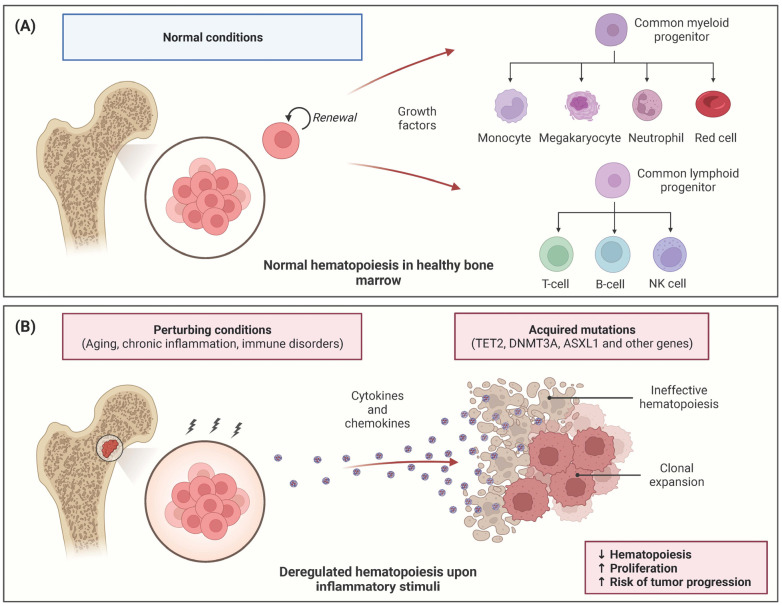Figure 1.
Inflammation impact on hematopoiesis (A,B). Hematopoietic stem cells (HSCs) in healthy bone marrow have the ability to self-renew and to differentiate into all blood cell lineages (A). Cytokines and chemokines are released from bone marrow microenvironment in response to stressors such as ageing, chronic inflammation, infections, and immune disorders (B). Prolonged or excessive exposure to these proinflammatory mediators can induce the loss of normal self-renewal HSCs capability and can lead to ineffective hematopoiesis. A common theme that has emerged from recent studies is that mutations in genes associated with CHIP (Clonal Hematopoiesis of Indeterminate Potential) and myeloid malignancies, such as Tet2 and Dnmt3a, render HSCs more susceptible to inflammation and chronic infections. In this scenario, the induction of HSCs clonal expansion due to inflammation contributes to sustained myelopoiesis and a more competitive advantage compared to that of normal cells.

